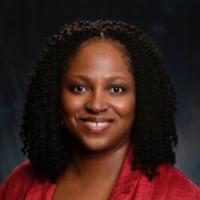
March 10, 2021,
To mark the 2021 International Women’s Day themed #Choose to Challenge, Afronomicslaw.org celebrates Professor Olufunmilayo Arewa’s brilliant contributions to Transactional Law and Intellectual Property Law. Murray H. Shusterman Professor of Transactional and Business Law at Temple University Beasely School of Law, Professor Arewa has worked as a consultant on various projects, including engagements relating to education and scientific and technological capacity in Africa. She was also the lead consultant on a project examining the feasibility of establishing a venture capital fund in the Eastern Caribbean.
“#Choose to Challenge: A challenged world is an alert world and from challenge comes change. So let's all choose to challenge.”
Afronomicslaw.org (A): Please tell us about your research.
Professor Olufunmilayo Arewa (OA): My research is interdisciplinary and focuses on the intersection of law, the social sciences, and humanities. I am working right now on a number projects that reflect core aspects of my research interests:
I am in the final stages of finishing a book that will be published in September 2021 titled Disrupting Africa: Technology, Law & Development (Cambridge University Press). This book is based on archival research and looks at the implications of technology disruption in Africa, with a focus on Nigeria. In this book, I look at the implications of legal and institutional structures put in place during colonialism for future paths. I deal with both international and comparative law issues, examining the impact of external forces on internal institutional structures. I also analyse how international law frameworks and English law have affected the development of common law in British colonies.
I am writing a book that I anticipate will be published in 2022 titled Creating Global Markets for Black Culture: Curation, Music & Law (under contract with Cambridge University Press). This book is also based on archival research. In Creating Global Markets for Black Culture, I examine business and legal contexts for the global spread of African American music since the late nineteenth century. I also explore how curation has impacted what has become categorized as “black” music at different points in time, and the implications of such categorization. I am working on adding a performance element to this book that would involve my working with collaborators on performing the music that I discuss in my book.
A: How did you become interested in academia and international economic law?
OA: I come from an academic family and received a Ph.D. in anthropology and M.A. in Applied Economics prior to becoming a lawyer. I became interested in economics during my studies in Applied Economics, which focused on international trade, and my work as an Economic Officer in the United States Foreign Service just prior to attending law school.
After attending law school, I did not have an interest in being an academic and practiced law a number of years, working mostly in the emerging company startup and venture capital space in Silicon Valley, New York, and Boston. I eventually began to think about ways to blend my past training and interests and became a legal academic.
A: What informs your scholarly interventions?
OA: My prior training in anthropology/folklore, economics, and law inform my scholarly interventions. My experience as a practicing lawyer in emerging company contexts informs my scholarly interventions. I have trained for a long time in classical voice. My personal musical practice also informs my scholarship, particularly as it relates to music.
A: Have you faced any challenges in your career because of your gender? If you have, how did you overcome these challenges?
OA: I have faced challenges in my career as a woman of color. Academia can be a challenging environment because what people say may not be consistent with what they actually do, to a far greater extent than has been my experience in non-academic environments. I see these challenges as ongoing ones and tend to focus on strategies that enable me to deal with effects of these ongoing challenges, both from a professional and personal perspective. Unless our society radically changes, I personally do not think in terms of overcoming these challenges because I anticipate new ones will continually appear, and some sort of challenge will always be present in some form, albeit in at times in unpredictable ways.
A: What lessons have you learned in the course of your career so far?
OA: It is important to have coping strategies for dealing with things you experience on both a professional and personal level. It is important to have mentors and a community of colleagues that you can trust, which may be virtual, especially these days
A: What advice would you give to younger female academics and students?
OA: Find mentors. Have flexible strategies for your professional and personal paths. Develop good coping strategies for ongoing challenges. Determine how to find balance in life and work.
A: Please describe yourself in three words.
OA: Reserved. Humorous. Creative.
A: What makes you happy.
OA: Singing. Baking. Spinning. Pilates. Writing.
A: What changes to the world would you like to see?
OA: I would like to see a world with less inequality and more real opportunities for all.